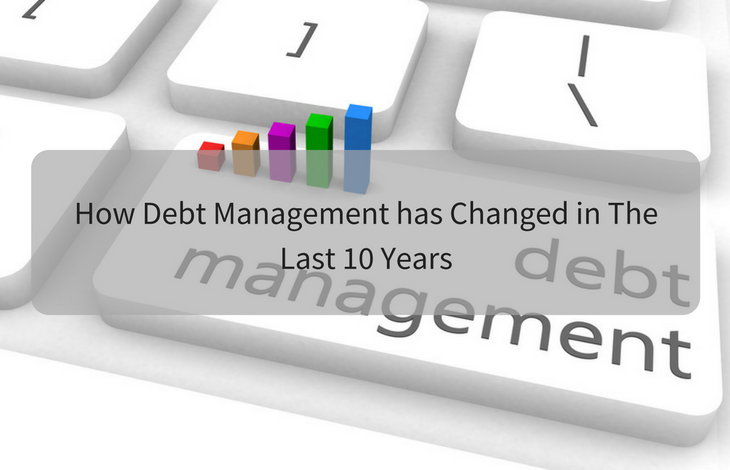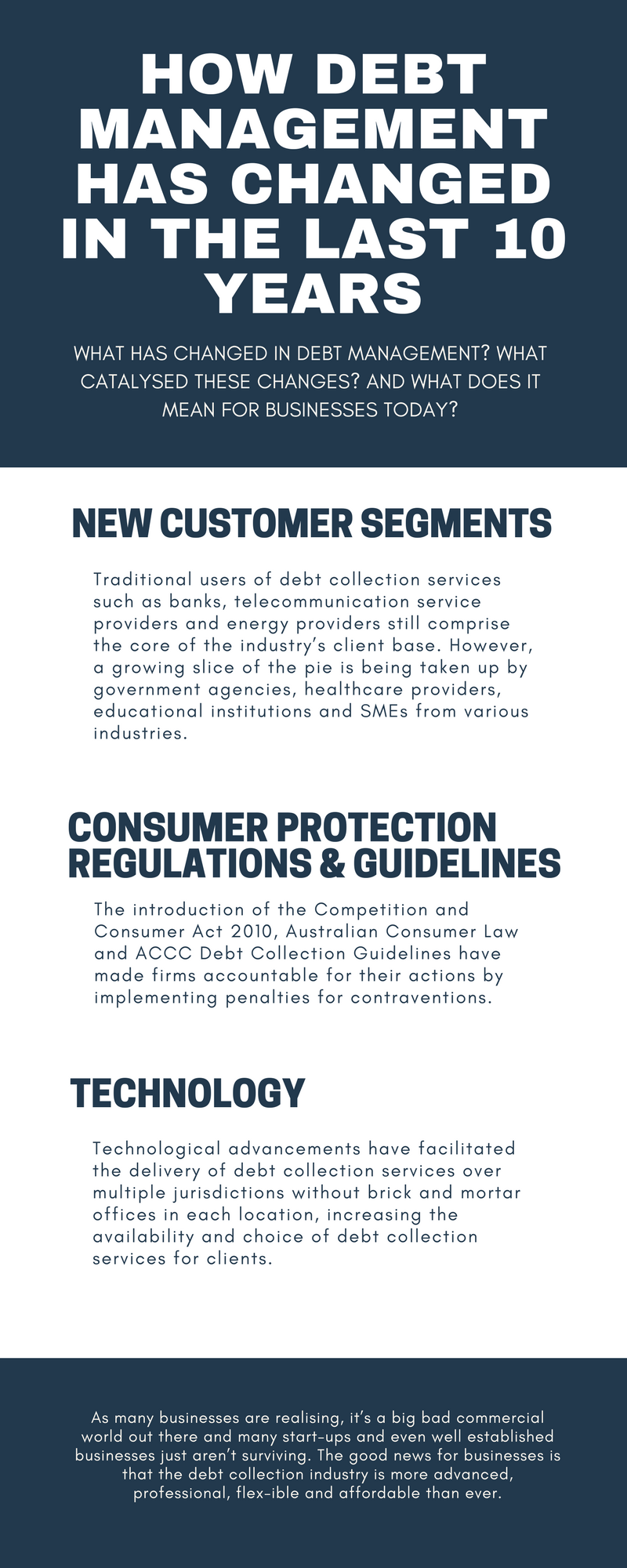
In years past, the debt collection industry did not always enjoy a positive public image due to some unethical activities of early players. In fact, the approach and reputation of the industry were such that many creditors left off engaging a collection agent at all, in fear of them jeopardising client relationships.
Unfortunately, to some extent this archaic stereotype is still called to mind when the word “debt collector” is used. However the reality is quite the opposite today.
A report recently conducted by the Australian Competition and Consumer Commission (ACCC) on the Australian debt collection industry noted a vast improvement in general standards, diversification of industries utilising its services, and a complete turnaround in its approach. The metamorphosis undergone by the debt collection industry over the past ten years has produced a professional and highly utilised commercial service for businesses large and small.
So what has changed in debt management? What catalysed these changes? And what does it mean for businesses today?

The changes and their catalyst
New customer segments
Traditional users of debt collection services such as banks, telecommunication service providers and energy providers still comprise the core of the industry’s client base. However, a growing slice of the pie is being taken up by government agencies, healthcare providers, educational institutions and SMEs from various industries. This may have stemmed from the GFC fallout which saw private and public enterprises begin implementing more efficient practices, tightening their budgets and increasing their collection efforts.
This in itself has prompted a number of transitions within the industry. Firstly, the “Big Four” debt collection agencies have emerged, who pocket a large proportion of industry profits each year. This appears to have resulted from high volume users of debt collection services opting to outsource to larger agencies that have the resources and sophistication necessary to accommodate and scale to their needs.
On the other hand, an influx of debt collection users from a range of specialist industries has created a strong market for smaller niche and boutique collection agencies, whose competitive advantage is their inside knowledge of a particular industry.
Consumer protection regulations and guidelines
By far the biggest shift within the industry has been toward ethical practices and methods that harmonise with consumer protection laws. The introduction of the Competition and Consumer Act 2010, Australian Consumer Law and ACCC Debt Collection Guidelines have made firms accountable for their actions by implementing penalties for contraventions. This has engendered awareness among consumers of their rights and shaped the attitude of the commercial business environment toward consumer protection, meaning the average business is by and large, more concerned with ethical consumer treatment.
Increased government usage of debt collection services has also driven the shift toward professionalism and specialisation in service delivery due to the strict regulatory compliance and high standards of conduct required by government clients.
Technology
The implementation of technology such as digitised call recording has enhanced compliance monitoring, internal oversight and record keeping. For example, many large call centre based operations utilise automated computer systems to monitor compliance with regulatory guidelines regarding the appropriateness of timing and frequency of debtor communications.
The increased online presence has meant social media sites have become a useful avenue for investigating, locating or contacting consumer debtors.
Technological advancements have also facilitated the delivery of debt collection services over multiple jurisdictions without brick and mortar offices in each location, increasing the availability and choice of debt collection services for clients.
What this means for businesses
As many businesses are realising, it’s a big bad commercial world out there and many start-ups and even well established businesses just aren’t surviving. Statistics show that effective debt management is a key factor in maintaining cash flow, profit and growth.
The good news for businesses is that the debt collection industry is more advanced, professional, flexible and affordable than ever. Businesses can be confident that a reputable debt collection firm will recover their debts quickly and efficiently, and in a way that will preserve their client relationships.
If you haven’t outsourced your debt collection in the last ten years, do yourself a favour and check out what the modern debt management industry has to offer your business.




